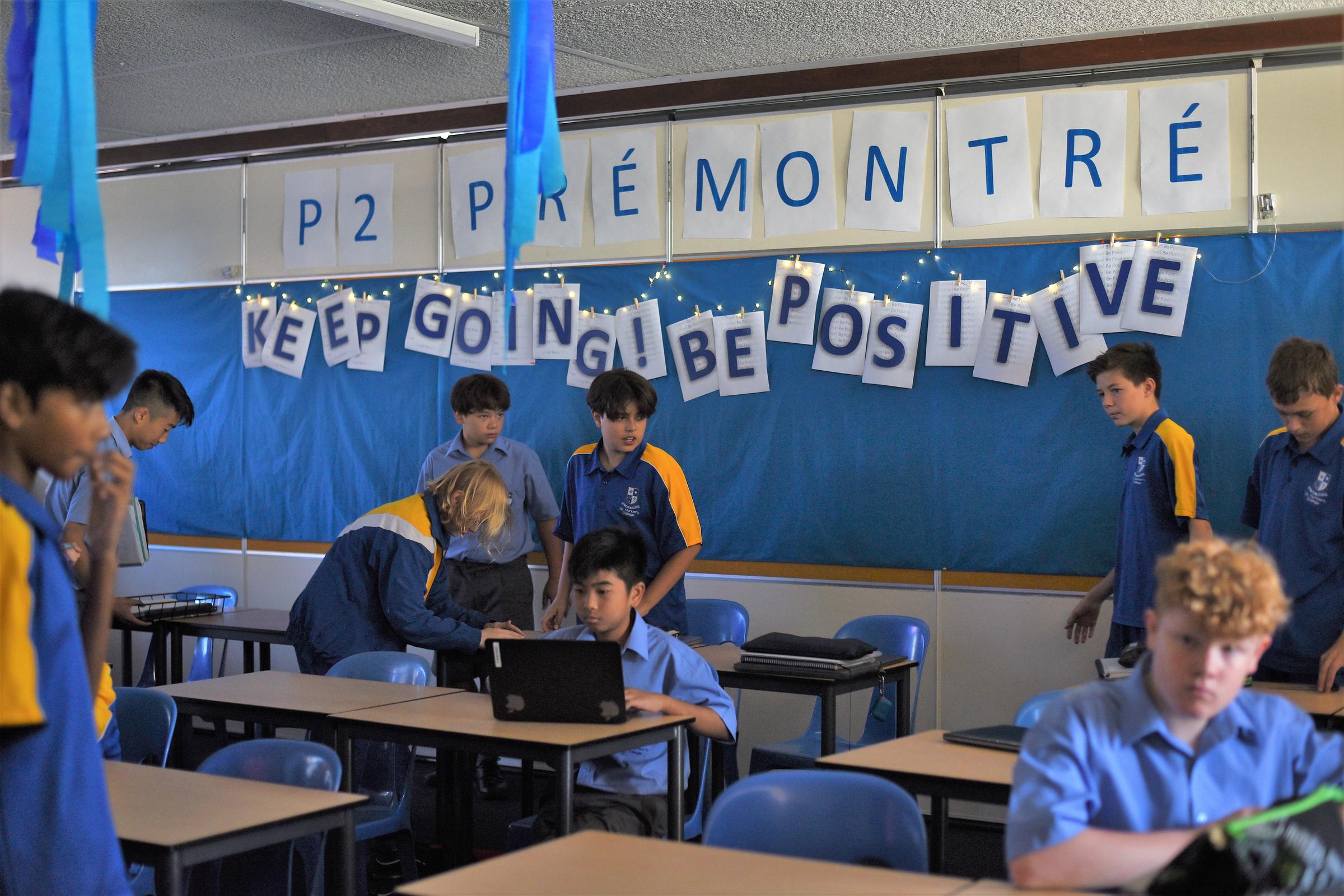Pastoral Care
Emotional intelligence

Pastoral Care
Emotional intelligence
Emotional intelligence is associated with a wide range of positive outcomes among children and adolescents, including improved cognitive and social functioning, psychological wellbeing and higher academic performance. Classrooms rated higher in emotional intelligence have students who are more engaged, behave in more prosocial ways, and learn better. St Norbert College is invested in developing the necessary emotional skills to assist our students reach their full potential in school, at home, and in the wider community.
Emotional intelligence is an awareness of emotions, understanding how emotions influence us, and using this information to make wiser decisions. All emotions matter as it’s the full range of emotions that make us human and assist us to get through life. How do we truly understand what it means to be joyful if we’ve never been disappointed, happy if we’ve never been sad?
By working on our social and emotional language and having conversations about it then we make the College a safer, more caring and joyful place to be. As we become more emotionally skilled our mindset shifts around the value of emotional intelligence, we recognise how our emotions influence others, and we’re preparing students for a life after formal schooling regardless of career aspirations. Research shows that understanding and effectively managing our emotions predicts important life outcomes such as greater health and wellbeing, better decision making, higher quality relationships and better performance academically and in the workplace. We are ‘Preparing them for all Good Works’
Four key reasons matter in school and life:
Attention, learning and performance
Emotions can either enhance or derail performance. Interest and amusement increase attention and promotes greater engagement. Boredom, anxiety and fear disrupt or block concentration and interfere with the ability to learn and stay focused on tasks.
Decision making
Emotions influence our decision making in positive and negative ways. People who experience joy and are content in their environments tend to perceive individuals, places and events more favourably than those who are worried, annoyed or disappointed. Positive or pleasant emotions enhance flexibility in our critical thinking and allow students to be more creative in their approach to lessons.
Fostering good relationships
Our emotions are expressed through our facial expressions, body language and tone of voice and in doing so we either invite or inhibit others in our approachability. The emotions we display to others are crucial to building good relationships with others.


Health and wellbeing
Emotions release a variety of signals to the brain that influence our physical and mental health, including our immune system. Pleasant emotions provide many health benefits including greater resilience. People who learn ways to manage emotions are likely to experience greater well-being.
Research shows that understanding and effectively managing our emotions predicts important life outcomes such as greater health and wellbeing, better decision making, higher quality relationships and better performance academically and in the workplace. Beginning in 2022, teachers, College leaders and staff members were introduced to learning about how we can use the skills of emotional intelligence to reach our goals and then transfer this knowledge to give students and teachers a common language to share how they are feeling. The RULER approach has been developed by Yale Centre of Emotional Intelligence to assist all to become more emotionally and socially skilled.
RULER, an evidence-based approach to social and emotional learning is an acronym for the skills of emotional intelligence. It is based on five keys skills that form tools to develop self-awareness:
The focus is to give students, teachers and families a common language to share how they are feeling which reduces the rising levels of anxiety we are seeing in society due to the lack of knowledge of how to express ourselves. Conversations are based on how we are feeling in any given moment or situation and how these can be regulated in healthy, respectful ways.
Recognising assists us to obtain vital information that signal whether things are going well or poorly for ourselves and other people, and this helps us attend to our own and other’s needs. In the classroom, as in life, the ability to accurately recognise emotions is the key to connecting and building relationships.
Understandingis recognising how different emotions influence our thinking, decisions, and behaviour. Through understanding the causes and consequences of emotions it provides greater insight to ourselves and others.
Labellingincludes having a diverse vocabulary to express the full range of emotions, from basic like fear or joy, to complex like shame or elation. By expanding our vocabulary and teaching words to describe the variations of emotions felt we encourage conversations and reduce frustration that is often bottled up in young people, having a significant impact on their long-term well-being.
Expressing is the skill to communicate effectively with different people in different contexts. This also depends on our personality traits, cultural rules, and social norms. Because of this people have different rules and comfort levels around expressing emotions and so as a society it becomes the ‘norm’ to mask or hide true feelings. The more we encourage and teach our students to express emotions in effective, respectful ways, the safer and happier they feel at school and have increased engagement in lessons.
Regulating involves strategies to prevent or reduce unwanted emotions and to maintain, initiate, or enhance desired ones. It encourages positive self-talk, reappraisal of situations, and social support networks, and reduces the negative self-talk, blaming others or speaking in angry aggressive tones.
Students in Year 7 to Year 11 in 2022 were surveyed, with a very high response rate, to enable them to work together to develop a charter to assist decision making and be more positive towards each other. The Student Leaders, under the guidance of Heads of House reviewed the responses and identified common themes. The final product is the Student Code of Conduct and represents the students’ voices in how they want to feel at school and what they commit themselves and others to do to achieve these feelings.
Students have also been introduced to the concept of pausing and activating ‘their best self’. This enables them to take a moment for a deep breath and achieve clear specific goals rather than acting out of impulse. Best self-reflections and the Student Code of Conduct have assisted students express they want to be part of a positive school environment.
RULER strategies will be introduced in a range of classroom activities in 2023 including Religious Education and preparing students for Y9 Camp. When schools and families share goals for educating teens in academics and social and emotional skills, and partner around these goals, teens feel supported and reap the benefits. We look forward to learning and growing together this year.
To learn more about why emotions matter, visitwww.rulerapproach.org.
The Pastoral Care Team